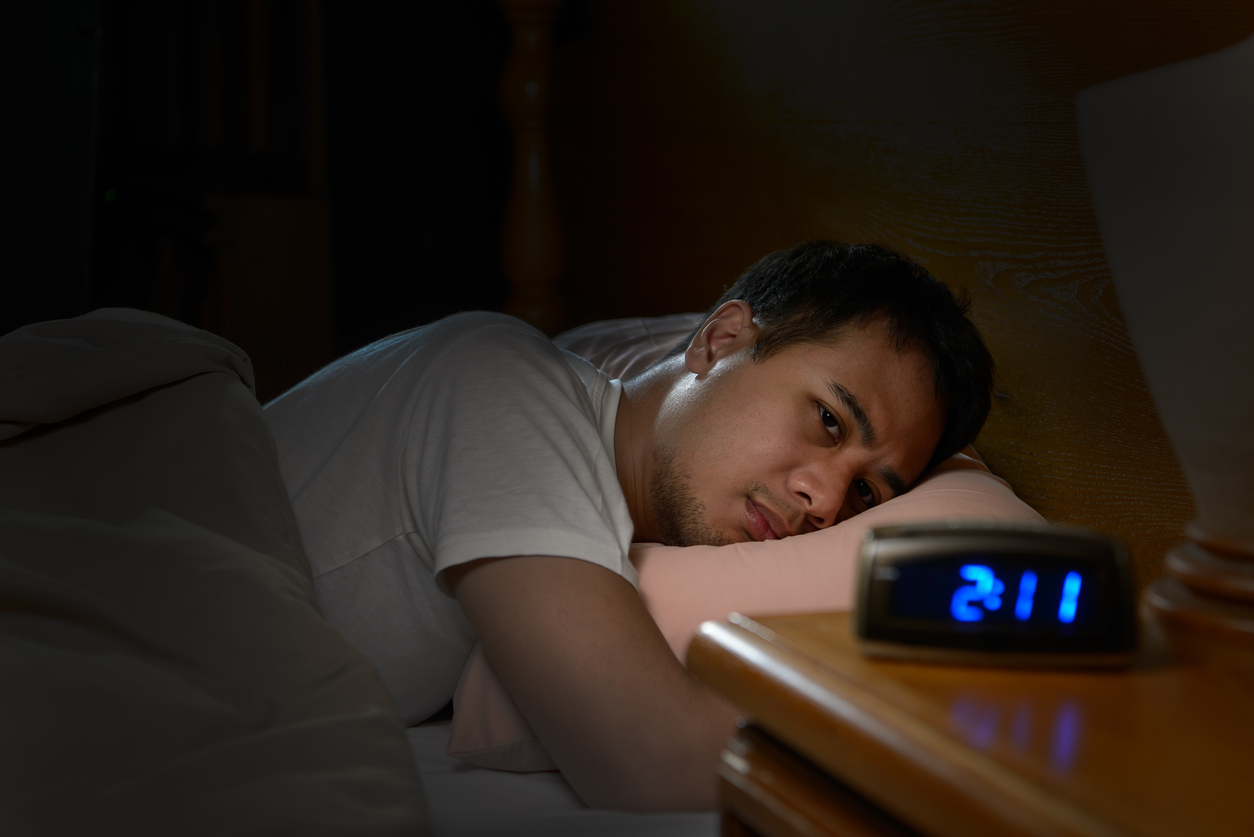
14 May The Connection Between Anxiety and Sleep & Strategies to Break the Cycle
Ever fall into bed, exhausted and ready to drift off to dreamland, only to suddenly find yourself wide awake and worrying? It’s not uncommon for individuals to struggle with anxiety and getting adequate sleep. Anxiety can disrupt sleep, leading to a cycle of sleep deprivation that can increase anxiousness. Understanding the relationship between the two and learning how to address it can vastly improve your quality of life. Read on to explore the connection between anxiety and sleep, as well as their relationship to each other and learn practical strategies to help break the cycle.
The consequences of poor sleep stretch far beyond feeling tired the next day. Physically, insufficient sleep can weaken the immune system, increase the risk of cardiovascular disease and contribute to weight gain. Mentally, lack of sleep can exacerbate anxiety, lead to mood swings, diminish cognitive functions and impair decision-making skills. The combination of anxiety and poor sleep can create a vicious cycle where one feeds into the other, making it essential to address both issues concurrently.
Understanding the Connection
Anxiety and sleep share a complex relationship, each influencing the other in a cyclical manner. When we experience anxiety, our minds can become overactive, making it difficult to relax and fall asleep. Racing thoughts, worry and physical tension can keep us awake long into the night. This lack of sleep can increase feelings of anxiety.
Research has shown that individuals with anxiety disorders are more likely to experience sleep disturbances such as difficulty falling asleep, frequent awakenings during the night and waking earlier than intended. Chronic sleep deprivation can increase the risk of developing anxiety disorders or make existing symptoms worse.
Breaking the Cycle
But don’t let this information worry you further. There is hope in breaking the cycle. It requires an approach that addresses both the underlying anxiety and the sleep disturbances. Here are some strategies that can help:
- Establish a Consistent Sleep Routine: Creating a regular sleep schedule can help regulate your body’s internal clock and improve sleep quality. Aim to go to bed and wake up at the same time every day, even on weekends. Establishing a relaxing bedtime routine can help break the anxiety-sleep cycle and help you rest well.
- Practice Relaxation Techniques: Deep breathing, high frequency music or mindfulness meditation can help calm an anxious mind and promote relaxation before bedtime. Incorporate these, or other relaxation techniques, into your bedtime routine to help you unwind and sleep.
- Limit Stimulants and Screen Time: Caffeine and nicotine can interfere with sleep, so it’s best to avoid them in the hours leading up to bedtime. The blue light emitted by screens can disrupt the production of melatonin, the hormone that regulates sleep-wake cycles. Limit screen time before bed and consider using blue light filters on electronic devices or blue light blocking glasses.
- Create a Comfortable Sleep Environment: Make sure your bedroom is cool, quiet and dark, and invest in a comfortable mattress and supportive pillows. Minimize noise and light disturbances, and consider using a white noise machine or earplugs if necessary.
Seek Professional Help
Anxiety often stems from irrational or distorted thoughts. If anxiety and sleep disturbances persist despite self-help strategies, don’t hesitate to seek professional help. Cognitive-behavioral therapy (CBT) can help identify negative thought patterns, and replace them with more productive ways of thinking. Working with a therapist trained in CBT, like some of the professionals at Psych Choices, can be beneficial for managing anxiety-related sleep disturbances. This may include therapy, medication, or a combination of both, depending on the severity of your symptoms.
Breaking the cycle of anxiety and sleep deprivation takes time and effort, but it is possible with the right strategies and support. By addressing both the underlying anxiety and the sleep disturbances, you can improve your overall well-being and quality of life. Remember, you don’t have to navigate this journey alone—Our healthcare professionals are here to assist you in your quest for better mental health. Improving your sleep and managing anxiety is a journey. Take that first step today and reach out to us at Psych Choices. We’re here to help you every step of the way.




Sorry, the comment form is closed at this time.